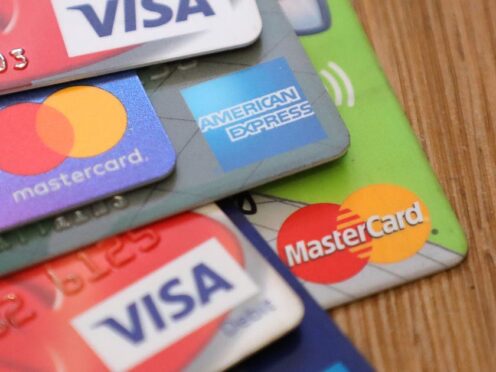Credit cards are increasingly being used to cover necessities by thousands of people amid the cost-of-living crisis, a charity warned.
Citizens Advice Scotland (CAS) conducted a poll which found that credit cards or loans were increasingly being used to pay for basics “at least once or in some cases more than once, that they wouldn’t normally use” in the past year.
The charity is running the “Stressed about Debt” campaign, which encourages people who are worried about bills to seek advice either in-person or online.
Analysis found that 16% of people (736,498) used commercial credit to pay for food, while 276,186 (6%) people used it to pay energy bills this year.
It also found that 138,093 (3%) people used commercial credit to cover housing payments this year, with the same figure also for council tax.
A spokesperson said the figures suggested that “for many people covering bills like energy, rent or council tax through debt is something they have been forced into because their income doesn’t cover those bills”.
Since last spring, Citizens Advice Bureau has helped write off more than £11 million worth of debt, with the average amount written off being over £12,600 per client.
CAS financial health spokesperson Sarah-Jayne Dunn said: “The cost-of-living crisis has seen the cost of essentials soar for people and what we are seeing across the Citizens Advice network, and now backed up by this research, is a worrying amount of people turning to commercial credit to cover these bills.

“For many people sticking the weekly shop on the credit card may be something that they don’t think anything of because they pay it back at the end of the month, but for many people covering bills like energy, rent or council tax through debt is something they have been forced into because their income doesn’t cover those bills.
“We want people who are stressed about their debts to seek advice and support from the Citizens Advice network. You don’t need to go to a CAB to get advice, instead you can check our online advice pages or use our interactive self-help tools.
“Our network gets real results for people – last year people who saw a gain having sought advice were more than £3,700 better off. Our advice is impartial, confidential and crucially free – we don’t charge for our advice and we never will.”
Visit www.cas.org.uk/stressed for more information.
